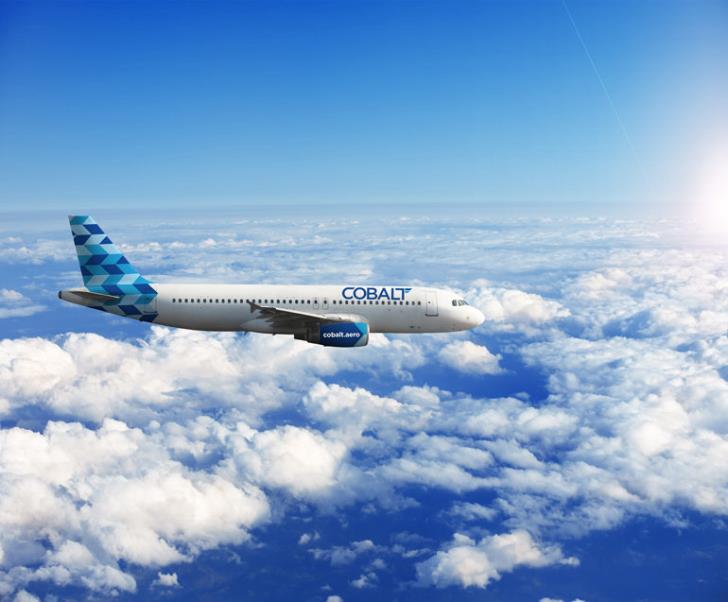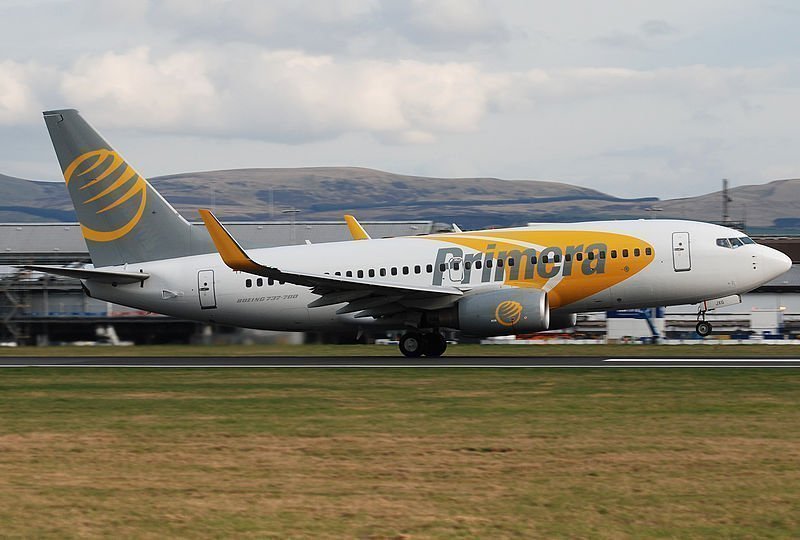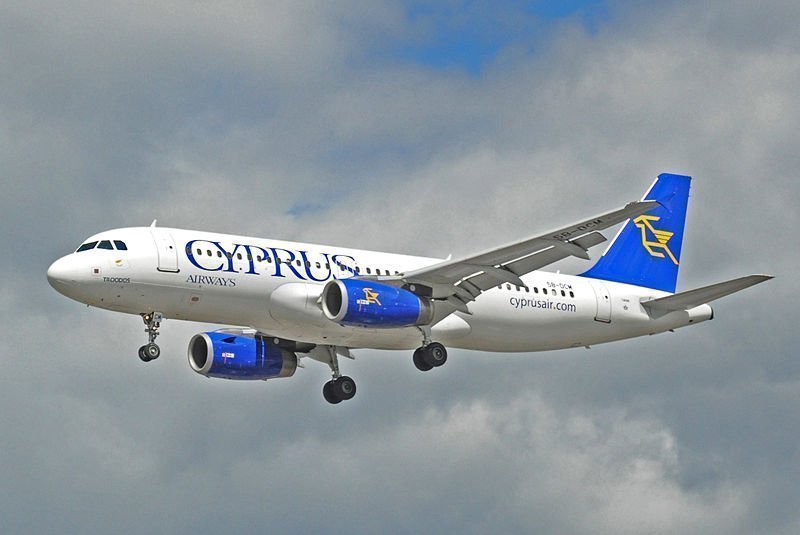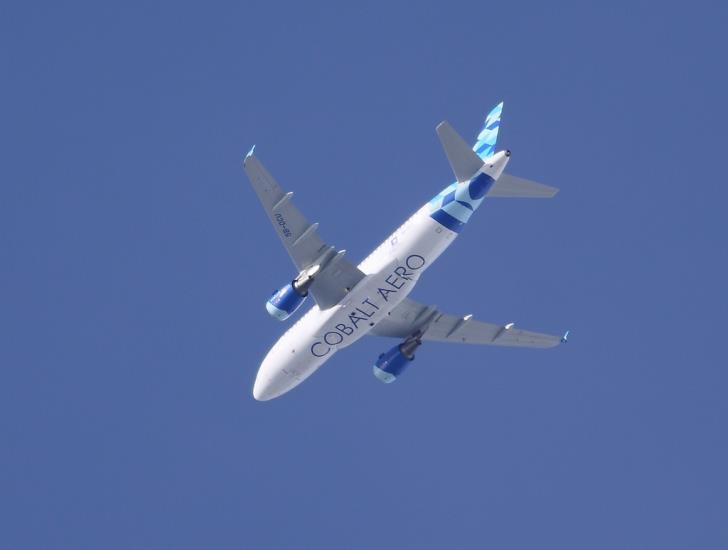Article first posted on aviationanalyst.co.uk
Alex Macheras, a London-based aviation analyst who regularly comments in the world’s leading international news networks, including BBC News, Sky News, Al Jazeera and CNN among others, wrote his thoughts on why small European airlines have been increasingly facing financial problems:
“Last week, the largest airline in Cyprus collapsed after failing to reach a deal with a potential new investor, following the decision of its Chinese majority investor to suspend its investment in the airline.
Cobalt was the example of a small, stand-alone European carrier, vulnerable to the harsh European aviation market that exists today. The airline were a small player compared with its European competitors, but its headwinds and challenges were same facing airline low-cost giants such as easyJet, and Norwegian Air.
Despite Cobalt’s largest investor, AVIC — a Chinese holding company — pumping millions of euros into the airline, Cobalt, like other smaller players, still face increasing pressure amid the price of oil reaching around $90 US dollars a barrel. Back In 2016 oil prices saw airlines’ fuel bills drop from $140 a barrel to $40. This significantly helped many airlines’ profits. However, today’s rising oil price means the cost of fuel is back at nearly $100…wiping out a lot of profit and increasing expenditure.

In aviation, supply is often greater than demand, and Europe is not immune to this trend. Overcapacity in the European aviation sector has resulted in the demise of airline operators such as Monarch Airlines, who were present in both the low-cost airline market and the leisure airline market — while failing to be a market leader in either. The airline faced fierce competition from both sides and collapsed amid its flawed strategy.
Just last month, low-cost airline Primera Air went bust in the middle of its ambitious growth period. The airline rushed to establish bases all over Europe and started transatlantic flying as a ‘low-cost long-haul’ operator model. After a disruptive summer period, the airline admits ‘there isn’t any money for us to continue’ — and Primera Air ceased operations with immediate effect.
The end of summer is often a ‘make it or break it’ time for an airline, as its board members determine the amount of cash needed to carry the airline through a quieter winter period — where demand lowers and flights may struggle to break even.
Winter is a difficult time for any European airline, given the lower demand but continuing high costs, but the season is even more of a challenge for the financially fragile players of the airline market.

A sharp increase in Air Traffic Control strikes across Europe has wreaked havoc on airlines, their passengers and business, and 2018 is shaping up to be one of the worst years ever for Air Traffic Control trikes in Europe. Strike days are incredibly costly for European airline operators, who are forced to cancel flights, re-route flight paths and rearrange travel plans for hundreds of thousands of passengers.
It’s also worth highlighting that Cypriot carrier Cobalt was more a vulnerable European airline compared with nearly all of its competitors, given the carrier is a stand-alone airline and not an airline subsidiary of a major airline group. Without the backing of a parent group owner such as IAG (who own British Airways, Vueling, Level, among others), the airline faced challenges attempting to battle against its consolidated airline competitors, of whom have the backing of a profitable airline group owner.
Cobalt’s fellow Larnaca-based airline, the ‘new’ Cyprus Airways, may look like an independent airline…but it’s actually an airline subsidiary of profitable-Russian airline group ‘S7 Group.’ Given the airlines’ subsidiary status, it has fewer challenges to independently overcome, and has the added financial protection of belonging to a profitable airline group. S7 Airlines saw a net profit grow by 10.3% in Q1 2018.
Cyprus as a destination remains incredibly popular, and the relatively expensive year-round fares offered by airlines including easyJet and British Airways reflect the demand for travellers visiting the island. Cobalt was flying over 1,500 passengers per day across its route network, and so the collapse of the airline results in a significant loss of seats to the Cypriot market. Airlines have already started to respond to the loss of seats by increasing their prices — easyJet fares for flights from the UK to Cyprus are currently up 30%.

External political influences such as ‘Brexit’ (Britain’s upcoming exit from the European Union) was blamed by many airlines including Virgin Atlantic, who say it carried 100,000 fewer passengers last year, as the pound collapsed following the Brexit vote. Virgin Atlantic said the referendum knocked demand from UK travellers, and uncertainty surrounding the UK’s future relationship with the EU continues this trend.
Furthermore, a weak Pound and Euro is continuing to cause airlines a headache, as European airlines have to purchase fuel in US dollars (and the dollar is currently very strong against both currencies).
Norwegian, which has defied predictions from a year ago and kept aloft, still sustains heavy losses. At the end of 2017, Norwegian Air International’s operating loss almost doubled from the previous figure of $234 million. It suffered a net loss of $390 million and blamed new expenditure on a 61% hike in fuel costs to $535 million. The airline highlighted that the majority of the loss was as a result of start-up costs relating to new bases which the company does not expect to incur in the future. Norwegian’s CEO said “It is envisaged that the company will become profitable in future years” — but investors will be watching closely, given Norwegian’s financials are not sustainable in the current European aviation climate.
In the UK, Flybe’s share price was sent tumbling last week, amid a profit warning released from the regional airline. In fact, share prices are slumping across the European aviation sector, at almost three times the rate of the overall FTSE fall in the last month.
Final Thought
The current state of the European aviation market…is harsh. Overcapacity, higher oil price, political decisions sending jitters across the stock market, and an upcoming season of lowered demand are enough to hurt profits at even the most financially stable airlines, including IAG Group, and Air France-KLM. Smaller players often have more against them, than in their favour.
Several airlines have identified falling consumer demand and forecast overall revenues to decline, and airlines in financial trouble, such as Flybe, and Polish airline of Lithuania Small Planet Airlines, will be watched closely as Europe enters the winter season.”
Follow Alex on twitter @AlexInAir or visit his website aviationanalyst.co.uk.






